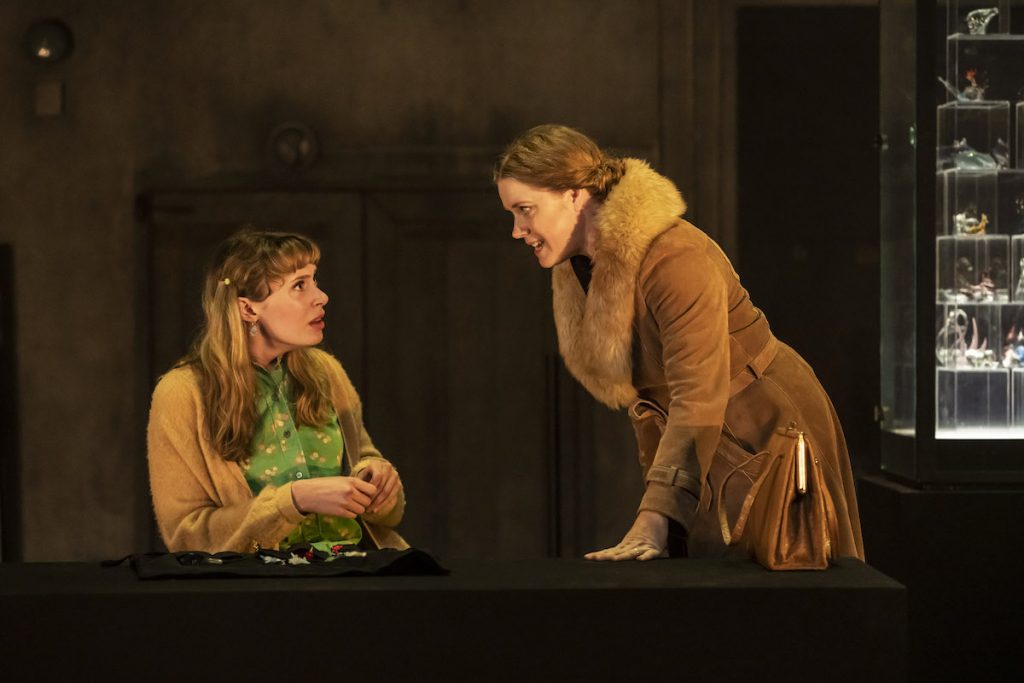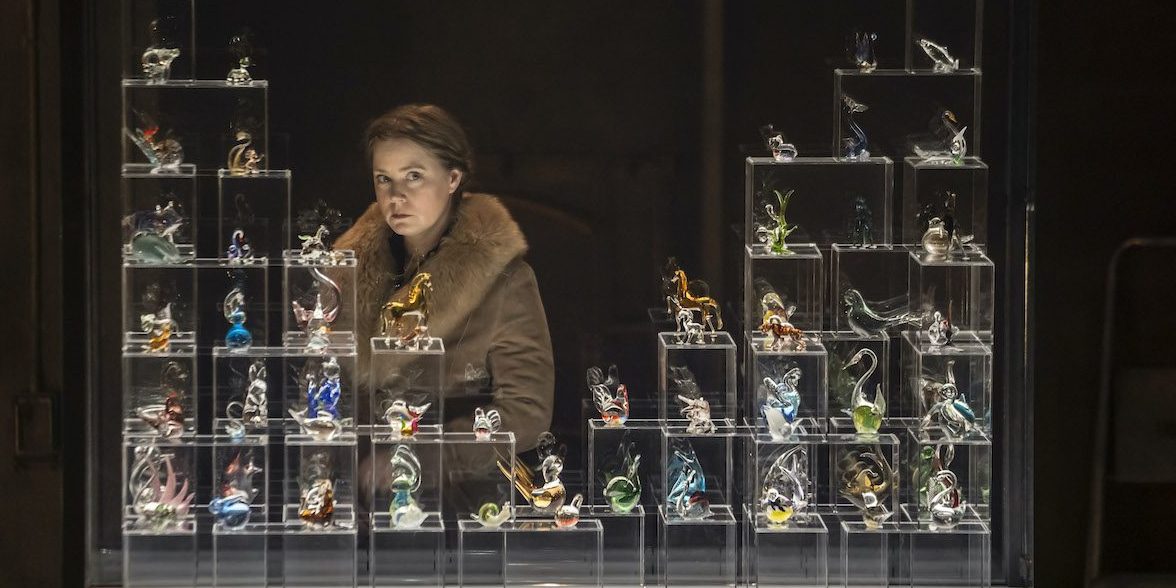Helen Hayes did it. Julie Harris did it. Jessica Tandy did it. Jessica Lange did it. Sally field did it. Cherry Jones did it (at the very same theatre actually). And now it’s Amy Adams’ turn to tackle one of the greatest roles ever written (in 1944) for an actress of a certain age – Amanda Wingfield, the stage mother of all stage mothers, a titanic task handled by truly legendary performers before her.
Adams looks much younger than she really is (nearly48), and her film stardom is one of the main attractions of this, almost sold-out production. Her casting seems a bit risky on paper, due to her slim theatre experience (only one show to be exact, the musical “Into the Woods” in New York) and the fact that she is not a traditional Amanda, not “larger than life”, not brassy and loud, certainly not over the hill but at her prime, possessing a different kind of “oomph”. In other words, she could be perfect once for the part of Amanda’s daughter, Laura, age 24, the gentle soul and introverted castaway, secluded in her own private world, surrounded by the glass figurines of the play’s title. Adams is petite and delicate, but her towering talent and mesmerizing stage presence make for an unusual and unforgettable Amanda. With a sweet, soft voice and mild manners, Adams is not necessarily an overbearing monster, but a southern belle, still very much so but just a precious moment before it all fades away, stuck in the wrong life, full of disappointment and heartache and high hopes for Laura, who suffers from a minor disability. Laura’s future, as a good wife to a good husband – basically the first “gentleman caller” that would knock on their door – might fix Amanda’s past (that includes a deserting husband), or so she fantasizes. This is a performance that simmers gradually, quietly grows on you, and then comes to a full, devastating boiling point.

The interesting and exciting mini-miracle that happens with Adams’ bold and daring casting, assisted by the ever-so-sensitive direction of Jeremy Herrin, is that we get two Lauras: the young one and the older one, who mirrors her. Both are painfully fragile, both starving for love and some kindness, lost in the dark and waiting for the light. I cannot remember a more poignant production of this beautiful unicorn of a play, that reminded me of just how desperately sad it is.
Two sensational breakout performances, of Lizzie Annis as Laura and Victor Alli as Jim, the “gentleman caller”, combine for the standout (and Adams-less) scene of the evening, the candlelit conversation between them that ends with a kiss, most probably Laura’s first-ever kiss. The way Annis becomes stunningly gorgeous and alive after the kiss when the candles function like neon lights to a newly born star, and despite it also being her last kiss, at least with this gentleman, is the stuff theatre magic is made of.

